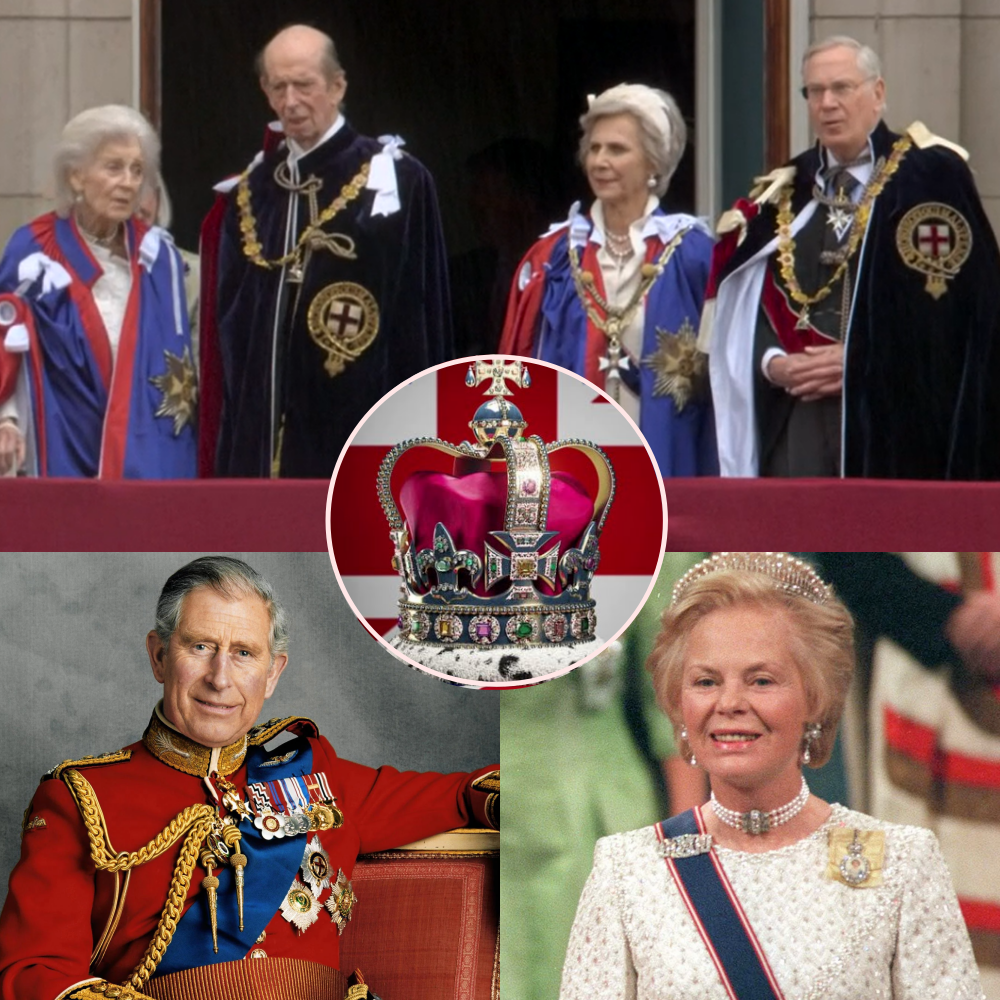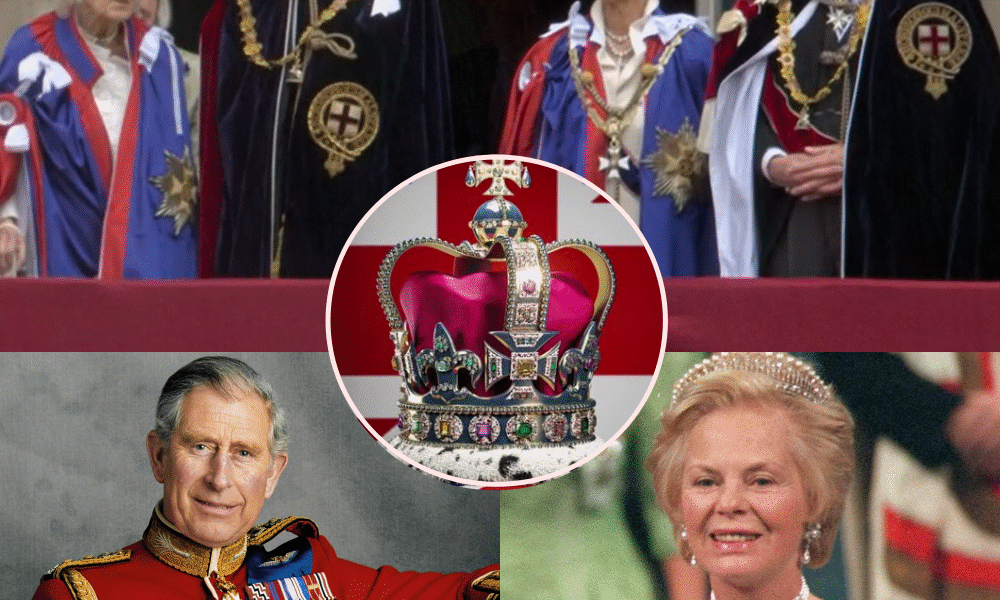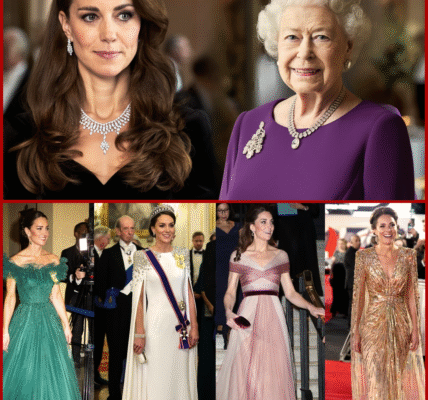ROYALS IN SHOCK! KING CHARLES TO HONOR DUCHESS OF KENT’S FINAL WISH WITH HISTORIC FUNERAL DECISION

The Royal Family has been rocked by both sorrow and history as King Charles III moves to fulfill the late Duchess of Kent’s final request: a Catholic funeral. At 92, the Duchess passed away quietly, but her farewell will now be anything but ordinary. In honoring her wish, Charles is not only saying goodbye to a beloved aunt but also sending a powerful message about the monarchy’s willingness to adapt, evolve, and respect deeply personal faith.
This decision has stunned royal watchers worldwide. For the first time in centuries, a member of Britain’s most famous family will be laid to rest with Catholic rites — a move that symbolizes inclusivity, modernity, and the quiet but undeniable transformation of the monarchy itself.
A Life That Spanned Nearly a Century
The Duchess of Kent’s story is remarkable even by royal standards. Born in 1932, she lived through the abdication crisis, the coronation of Queen Elizabeth II, the turbulent Diana years, and now the reign of King Charles III. Her long life reflected both stability and quiet resilience.
While other royals commanded headlines with drama and scandal, the Duchess carved out her own distinct path — grounded in faith, dignity, and service. She championed the arts, supported education, and gave her time to charitable work far from the limelight. Yet it was her conversion to Catholicism in 1994 that defined her as one of the most quietly revolutionary figures in the family.
A Historic Conversion
Her decision to embrace Catholicism shocked many at the time. For over 300 years, Catholicism had been a sensitive subject for the monarchy, bound up with laws that restricted royal marriages and dictated the monarch’s faith.
But the Duchess’s move was not political — it was personal. She found comfort in the rituals, the clarity, and the deep traditions of the Catholic Church. Her faith was not a publicity gesture but an intensely private conviction. In becoming the first royal in centuries to make such a conversion, she also challenged the unspoken boundaries of what it meant to be a modern royal.
Today, her wish for a Catholic funeral is not just about her — it is about faith meeting tradition, and personal conviction being respected at the highest level of monarchy.
King Charles’s Emotional Role
As her nephew, King Charles has taken this responsibility personally. Palace insiders reveal that Charles felt a deep duty to honor her spiritual journey, ensuring that her final farewell reflects who she truly was.
By agreeing to a Catholic service, Charles is making a statement: the monarchy will not only respect tradition, but it will also respect the individuality of its members.
Observers note that this decision also aligns with Charles’s long-standing emphasis on inclusivity and his acknowledgment of faith diversity across the United Kingdom. For a monarch often viewed as balancing tradition with modern values, this is a poignant and symbolic act.
Catherine’s Quiet Spiritual Legacy
The Duchess of Kent — known to close friends as Catherine — was never one to seek the spotlight. Yet her spirituality always spoke volumes. She once described her conversion as seeking “clarity and guidance,” and those close to her said she found profound peace in her faith.
Her Catholicism stood in quiet defiance of centuries-old restrictions, but it also opened the door for discussions about religious freedom within the monarchy. Even though reforms in 2013 allowed royals to marry Catholics, the monarch themselves must remain Protestant. Catherine’s journey highlighted this tension between tradition and personal belief.
More Than Just Ceremony
The decision to grant her final wish goes far beyond ritual. It represents a changing monarchy — one willing to adapt to the times. By allowing a Catholic funeral, King Charles is not just honoring an aunt; he is sending a message to Britain and the Commonwealth that the monarchy respects personal conviction in an age where individuality matters more than ever.
And for the Duchess herself, this farewell encapsulates her life perfectly: quiet, dignified, faithful, and deeply personal.
A Legacy of Service and Conviction
Beyond her faith, the Duchess of Kent leaves behind a legacy rooted in service. She devoted much of her time to music and education, believing in the power of the arts to inspire young people. Unlike many royals, she did not seek grandeur or headlines; instead, she lived her faith and values with humility.
Her passing marks the end of an era — not just for her family but for the monarchy as a whole. And with her funeral, history will once again take note.
Final Farewell
The Royal Family’s grief is undeniable, but so is the significance of this moment. The image of King Charles standing at his aunt’s Catholic funeral will resonate far beyond Windsor or Westminster. It will speak to the monarchy’s ability to honor individuality while carrying the weight of tradition.
The Duchess of Kent’s final wish was simple, but its impact is profound. In death, as in life, she has reminded the world that true faith is personal — and that sometimes, even the oldest institutions must bend in respect of it.




